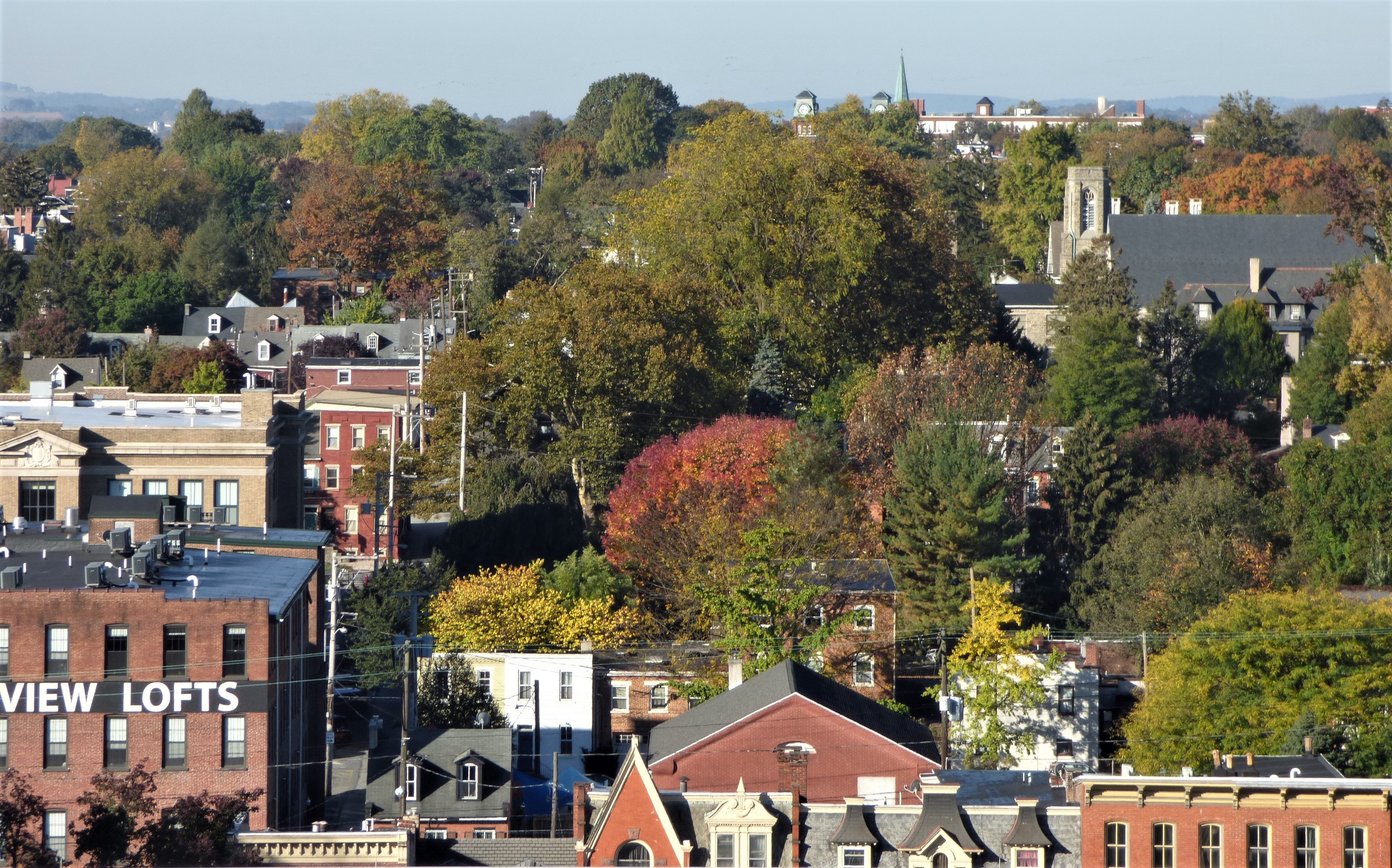A proposed amendment to Lancaster’s tree ordinance is stirring angry reactions from some city residents.
At issue is Bill 02 of 2024, which City Council reviewed at committee last week. It was introduced for its first reading Tuesday, which allows a vote at council’s next meeting on Feb. 27. (Council is also scheduled to vote at that meeting on a bill to codify Lancaster’s welcoming policies and protections for immigrants.)
It would mainly do two things, Public Works Director Stephen Campbell said: Iron out a conflict with state property law; and allow the city to have some say when people prune trees that encroach on their properties.
When parts of a tree cross a property line, it’s subject to Pennsylvania’s trespassing law. That gives the neighboring property owner the right to trim it back and sue the tree’s owner to recover the cost.
Lancaster’s tree ordinance shields medium and large trees, including those on private property, as well as shade trees from being cut down without permission. In cases where the state law applies, however, the trespassed-upon property owner’s right to prune back encroachments takes precedence and Lancaster can’t stop it, Campbell said.
The amendment is the city’s attempt to exert what limited control it does have, he said, by requiring would-be pruners to submit detailed plans to the city and obtain a permit. That way, city staff can do their best to preserve the tree’s health and viability.
Several city residents, however, accused the city of deliberately weakening its tree protections as a favor to development interests — specifically, the housing nonprofit HDC MidAtlantic. It is preparing to build The Apartments at College Avenue, an affordable housing project across from the former St. Joseph Hospital campus. To do so, it is planning to remove one tree on the Milagro House property next door (for which it has received permission) and trim back two others in the backyards of private residences on West Chestnut Street.

Neighbors say the project is too big for its site and have fought it at every step, including filing a legal challenge. They have contended that the tree cutbacks violate city regulations and are another reason it should not proceed.
The administration is rushing its bill through under false pretenses, charged Michelle Vonnieda-LaGrassa, who lives on West Chestnut Street near the College Avenue project. She disputed the notion that the city can’t have stronger protections than the state. If the ordinance passes, she said, it will allow the destruction of private property, expose homeowners to thousands of dollars in restitution costs and “ultimately lead to the demise and destruction of our current urban landscape.”
Laurie Ulrich, who lives several blocks away, said the change would neuter the Shade Tree Commission and “will result in Lancaster city losing countless beautiful trees.” She accused Mayor Danene Sorace of betraying the environmental bona fides she established leading the nonprofit Live Green, where Ulrich was a board member.
Nick Myers noted he is chair of the Shade Tree Commission but said he was speaking personally, not on its behalf. In his neighborhood, he said there’s a tree that extends over 13 properties. Any of those owners could decide to exercise their right to prune it, potentially killing it and robbing the other 12 of a valued shared asset. “Is that fair?” he asked.
Campbell acknowledged that the College Avenue project helped draw the city’s attention to its inconsistency with state law but said it is not otherwise a factor in the decision to propose the amendment. He emphasized that the right in state law to trim trespassing trees is clear and well established in court rulings.
The city researched the issue, he said, and found no instances “where a municipal ordinance has been held to defeat a common-law right.” The proposed amendment is just an acknowledgement of existing legal reality, he said, and keeping the ordinance as-is could expose Lancaster to lawsuits.
Lancaster’s new comprehensive plan calls on the city to “protect, maintain, and expand” its tree canopy and the city enthusiastically embraces that goal, Campbell said. Going forward, staff intend to work more closely with property owners and developers to plant trees in places that minimize the risk of trespass or other issues.
City Councilwoman Janet Diaz said the bill needs additional vetting and public airing and proposed tabling it until March 12. Since no action was being taken Tuesday, a motion to table isn’t an option, said City Clerk Bernie Harris, who serves as council’s parliamentarian, but it could be proposed when the bill comes up on Feb 27.
Darlene Byrd, who leads South Ann Concerned Neighbors, said the city should be more up-front about the costs involved when it promotes trees and tree plantings, especially in lower-income neighborhoods where many residents don’t have the extra resources to cover the cost of permits, trimming and so on.






